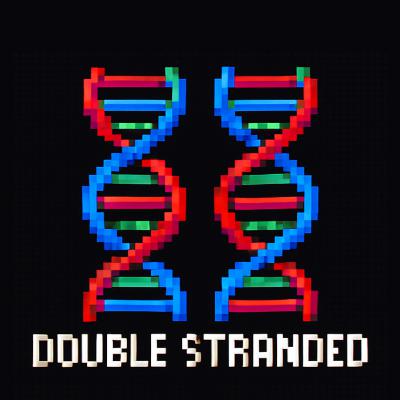Diabetes, GWAS, Biobanks | Dr. Andrew Paterson
Description
Dr. Andrew Paterson is a Senior Scientist in Genetics & Genome Biology at SickKids and a Professor at the Dalla Lana School of Public Health, University of Toronto. His work focuses on uncovering the genetic basis of diabetes and its complications.
In this episode, we discuss the real promise—and current limits—of GWAS in diabetes research, why the X chromosome is still often ignored, how datasets like GTEx and UK Biobank are shaping the future of precision medicine, and what functional follow-up really looks like. If you're curious about the path from variant to function to treatment, this one’s for you.
📖 Video Chapters:
0:00 - Highlights of the episode
2:07 - Welcome to Dr. Paterson & What Diabetes Really Is
3:11 - Monogenic, Type 1 & Type 2 — Mapping the Diabetes Family
5:11 - Life Before Insulin: Why Early Type 1 Was Fatal
6:46 - Where Each Diabetes Type Sits on the Genetic Spectrum
8:02 - HLA Breakthroughs: Early Genetic Clues to Type 1
8:45 - Childhood & Ancestry Risk: Who Gets Diabetes?
9:40 - Industrialization and the Type 2 Surge
10:55 - Do the Stats Match Patients in Clinic?
11:40 - Why Dr. Paterson Chose Diabetes & Genetics
14:02 - Genetics vs Confounding: Tracing Causal Pathways
16:17 - How Geneticists Link Variants to Disease
17:57 - 1 Billion SNPs & Linkage Disequilibrium 101
18:45 - SNP Arrays: From $1,000 to $20 Per Genome
20:07 - Whole-Genome Sequencing vs Genotyping Chips
20:58 - Cleaning Genotype Data: QC Essentials
21:49 - Regression Basics: Testing SNP–Trait Links
22:57 - Blood or Saliva? Where GWAS DNA Comes From
25:00 - The DCCT Trial & Its Landmark Design
26:44 - Conventional vs Intensive Diabetes Therapy
28:00 - C-Peptide: Residual Beta-Cell Function Insights
30:28 - Genetics, Environment & the Polygenic Reality
32:07 - Biobanks Power the Modern GWAS Boom
33:43 - Mega-Datasets: UK Biobank & Million Veteran Program
34:59 - Landmark 2010 Discovery: Gene for Glycemic Control
36:40 - Mining DCCT’s Longitudinal A1C Data with GWAS
38:44 - Diabetes-Specific Variant & DCCT’s Selective Cohort
40:00 - Conventional vs Intensive Therapy in the DCCT
41:50 - From Finger-Prick Meters to Continuous Glucose Monitors
42:48 - Breakthrough #2: COL4A3 Variant That Protects Kidneys
45:35 - Meta-GWAS Uncovers a Protective Missense Allele
47:49 - COL4A3 Minor Allele: Reduced DKD Risk
48:56 - RAST Trial & Renal Biopsy Insights
49:52 - GBM Thickness Links Genetics to Pathology
50:45 - Diabetes-Specific Gene-Environment Interaction
52:12 - Type 2 Diabetes: Power & Confounders
52:55 - Variant-to-Function Workflow: Starting the Hunt
53:45 - Tools: GWAS Catalog & GTEx for Functional Clues
55:39 - GTEx & eQTLs — Turning GWAS Hits into Gene-Expression Clues
56:46 - pQTL Goldmines: UK Biobank, deCODE & Plasma Proteomics
57:36 - From Association to Biology: How Long Does Functional Follow-Up Take?
58:49 - Modeling COL4A3 in Diabetic Mice: A Roadmap for Mechanistic Proof
60:05 - Genetics at the Top of the Drug-Discovery Funnel
61:01 - Why Genetic Targets Double a Drug’s Odds of Success
62:35 - Stop Skipping the Sex Chromosomes! X & Y in GWAS Explained
1:03:35 - Cracking the X-Chromosome Problem
1:04:30 - Imputation & Meta-Analysis Fixes
1:05:59 - Quality Concerns: Why Researchers Hesitate
1:06:55 - Polygenic Scores Need X-Linked Signals
1:07:33 - Is the Field Getting Better?
1:08:30 - Publishing Standards & Acronym Debates
1:09:12 - So… What Does This Mean for the Average Person?
1:10:53 - Precision Screening: Genetics Guides Cancer Checks
1:11:28 - From Promise to Practice: Genes in Everyday Care
1:12:03 - Career Wisdom for Aspiring Researchers





